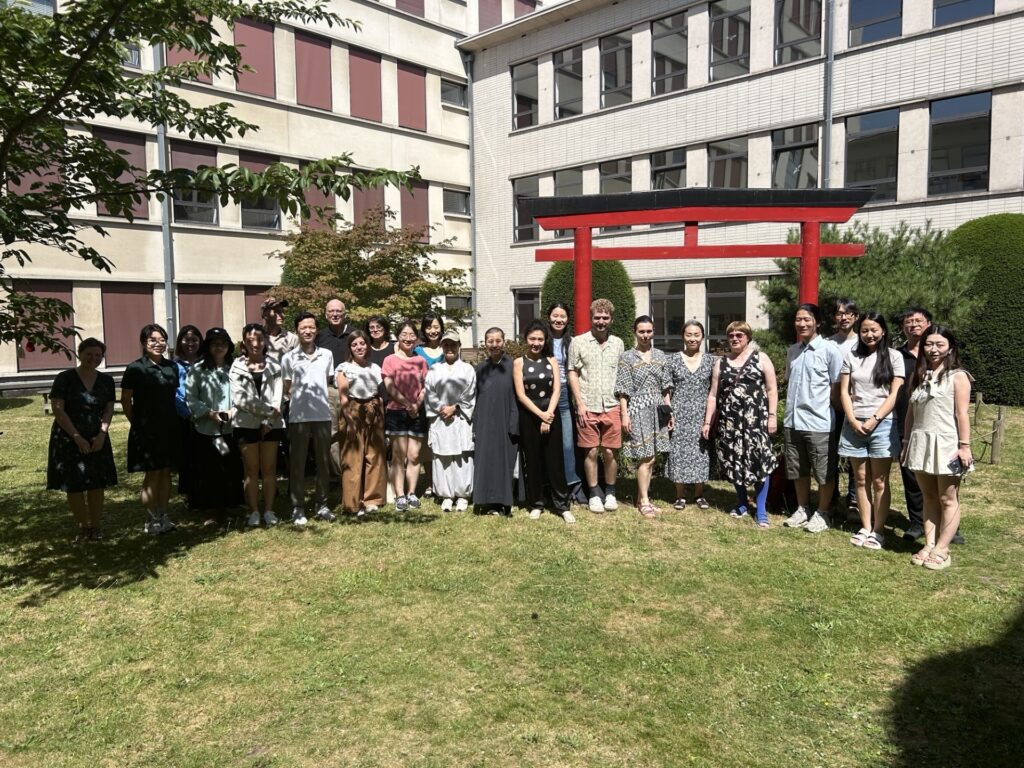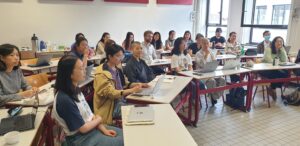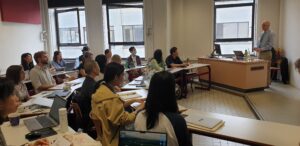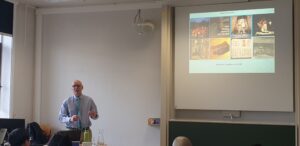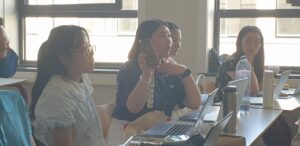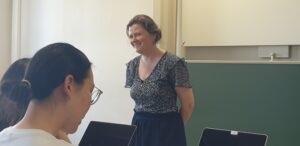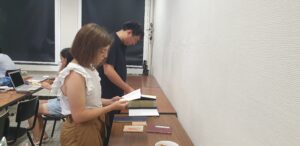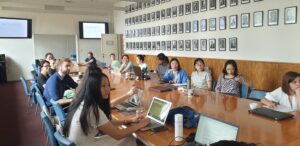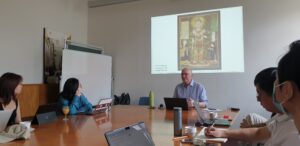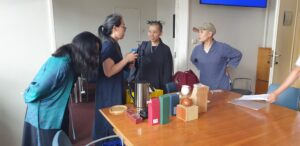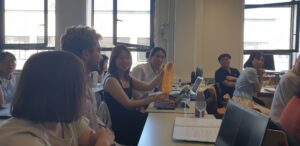Abstract: This five-day, on-campus course explores how Buddhism has influenced the creation of new objects, ideas about objects, and behaviors related to objects. Focusing on China, the course requires no prior knowledge of Chinese, as all readings and instruction will be conducted in English. Designed for doctoral students, it is ideal for those with backgrounds or an interest in Art History, East Asian History, Religion and Material Culture, Buddhist Studies, Chinese Studies, or Chinese Religion. The course will offer ca. 20 contact hours in total, with 4 to 5 hours of instruction per day. It will feature a blend of lectures, small-group projects, discussions, participant presentations, and a museum visit.
Doctoral school: Call for applications
We are pleased to announce the following Doctoral School Specialist Course for PhD students at Ghent University (Belgium):
“Buddhist Material Culture”
Date: June 26 – July 1, 2025
Venue: Ghent University
Organizing committee: Prof. Dr. Ann Heirman and Dr. Anna Sokolova
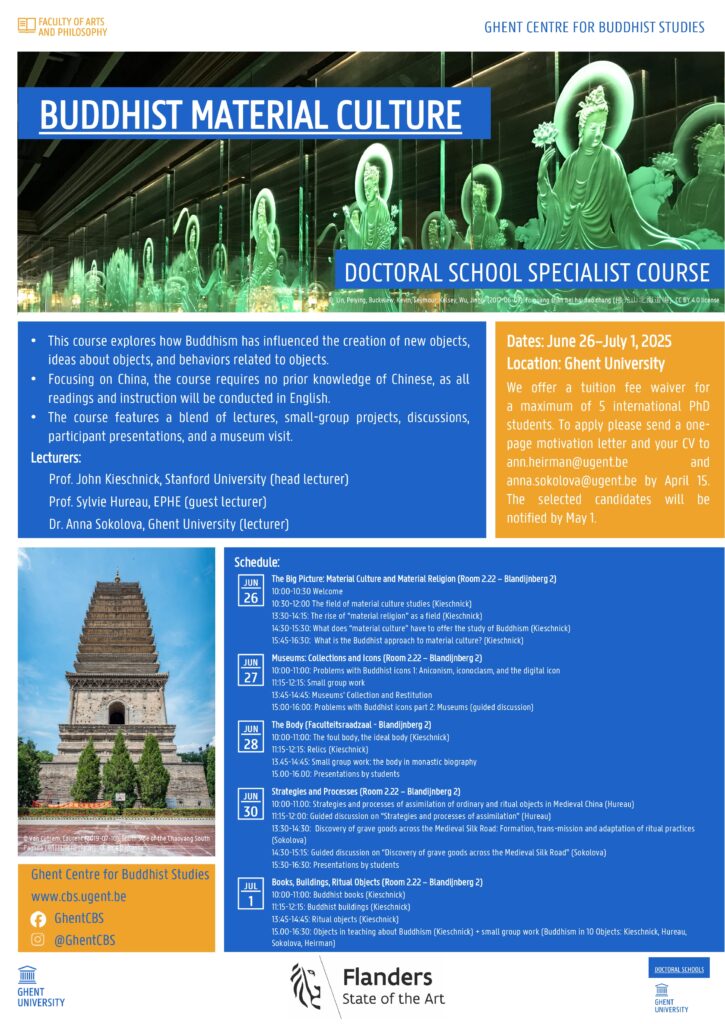
Description
This five-day, on-campus course explores how Buddhism has influenced the creation of new objects, ideas about objects, and behaviors related to objects. Focusing on China, the course requires no prior knowledge of Chinese, as all readings and instruction will be conducted in English. Designed for doctoral students, it is ideal for those with backgrounds or an interest in Art History, East Asian History, Religion and Material Culture, Buddhist Studies, Chinese Studies, or Chinese Religion. The course will offer ca. 20 contact hours in total, with 4 to 5 hours of instruction per day. It will feature a blend of lectures, small-group projects, discussions, participant presentations, and a museum visit.
Thanks to the generous support of Ghent University, we are pleased to award a tuition fee waiver for a maximum of 5 international PhD students. To apply please send a one-page motivation letter and your CV to ann.heirman@ugent.be and anna.sokolova@ugent.be by April 15. The selected candidates will be notified by May 1.
Lecturers
Prof. John Kieschnick, Stanford University (head lecturer)
Prof. Sylvie Hureau, EPHE (guest lecturer)
Dr. Lyce Jankowski and Lara Bauden, Royal Museum of Mariemont (guest lecturers)
Dr. Anna Sokolova (lecturer)
Schedule (updated)
Thursday, June 26. The Big Picture: Material Culture and Material Religion (Room 2.22 – Blandijnberg 2)
10:00-10:30 Welcome
10:30-12:00 The field of material culture studies (Kieschnick)
12:00-13:30 Lunch break
13:30-14:15: The rise of “material religion” as a field (Kieschnick)
14:15-14:30: Coffee break
14:30-15:30: What does “material culture” have to offer the study of Buddhism (discussion of Schopen, “Archaeology and Protestant Presuppositions in the Study of Indian Buddhism” in small groups and as a whole, led by Kieschnick)
15:30-15:45: Coffee break
15:45-16:30: What is the Buddhist approach to material culture? (discussion of a brief sutra, a painting and an image, in small groups and as a whole, led by Kieschnick)
Friday, June 27: Museums: Collections and Icons (Room 2.22 – Blandijnberg 2)
10:00-11:00: Problems with Buddhist icons 1: Aniconism, iconoclasm, and the digital icon
11:00-11:15: Coffee break
11.15-12.15: Small group talk (Lyce Jankowski, Lara Bauden)
12:15-13:30: Lunch break
13:45-14:45: Museums’ Collection and Restitution (Lyce Jankowski, Lara Bauden)
14:45-15:00: Coffee break
15:00-16:00: Problems with icons 2: Religion in the Museum
Saturday, June 28: The Body (Faculteitsraadzaal – Blandijnberg 2)
10:00-11:00: The foul body, the ideal body (Kieschnick)
11:00-11:15: Coffee break
11:15-12:15: Relics (Kieschnick)
12:15:-13:45: Lunch break
13.45-14:45: Small group work: the body in monastic biography
14:45-15:00: Coffee break
15.00-16.00: Presentations by students
Sunday, June 29: No Class
Monday, June 30: Strategies and Processes (Room 2.22 – Blandijnberg 2)
10:00-11.00: Strategies and Processes of Assimilation of Ordinary and Ritual Objects in Medieval China (Hureau)
11.00-11:15: Coffee Break
11:15-12:00: Guided discussion on “Strategies and Processes of Assimilation of Ordinary and Ritual Objects in Medieval China” (Hureau)
12:00:-13:30: Lunch Break
13:30-14:30: Discovery of Grave Goods Across the Medieval Silk Road: Formation, Transmission and Adaptation of Ritual Practices (Sokolova)
14:30-15:15: Guided discussion on “Discovery of Grave Goods Across the Medieval Silk Road” (Sokolova)
15:15-15:30: Coffee break
15:30-16:30: Presentations by students
Tuesday, July 1: Books, Buildings, Ritual Objects (Room 2.22 – Blandijnberg 2)
10:00-11:00: Buddhist books (Kieschnick)
11:00-11:15: Coffee break
11:15-12:15: Buddhist buildings (Kieschnick)
12:15:-13:45: Lunch break
13:45-14:45: Ritual objects (Kieschnick)
14.45-15.00: Coffee break
15.00-16:30: Objects in teaching about Buddhism (Kieschnick) + small group work (Buddhism in 10 Objects: Kieschnick, Hureau, Sokolova, Heirman)
